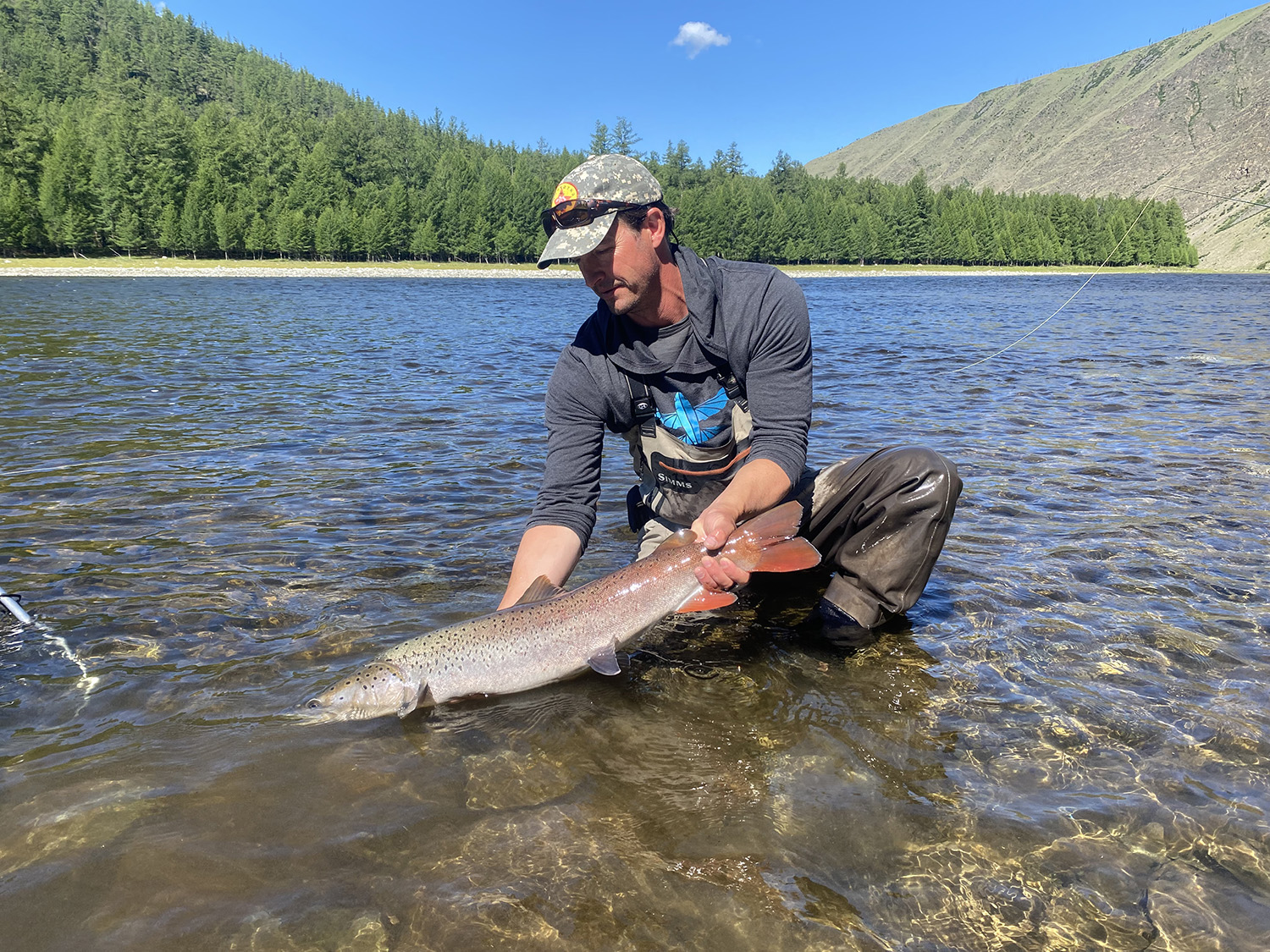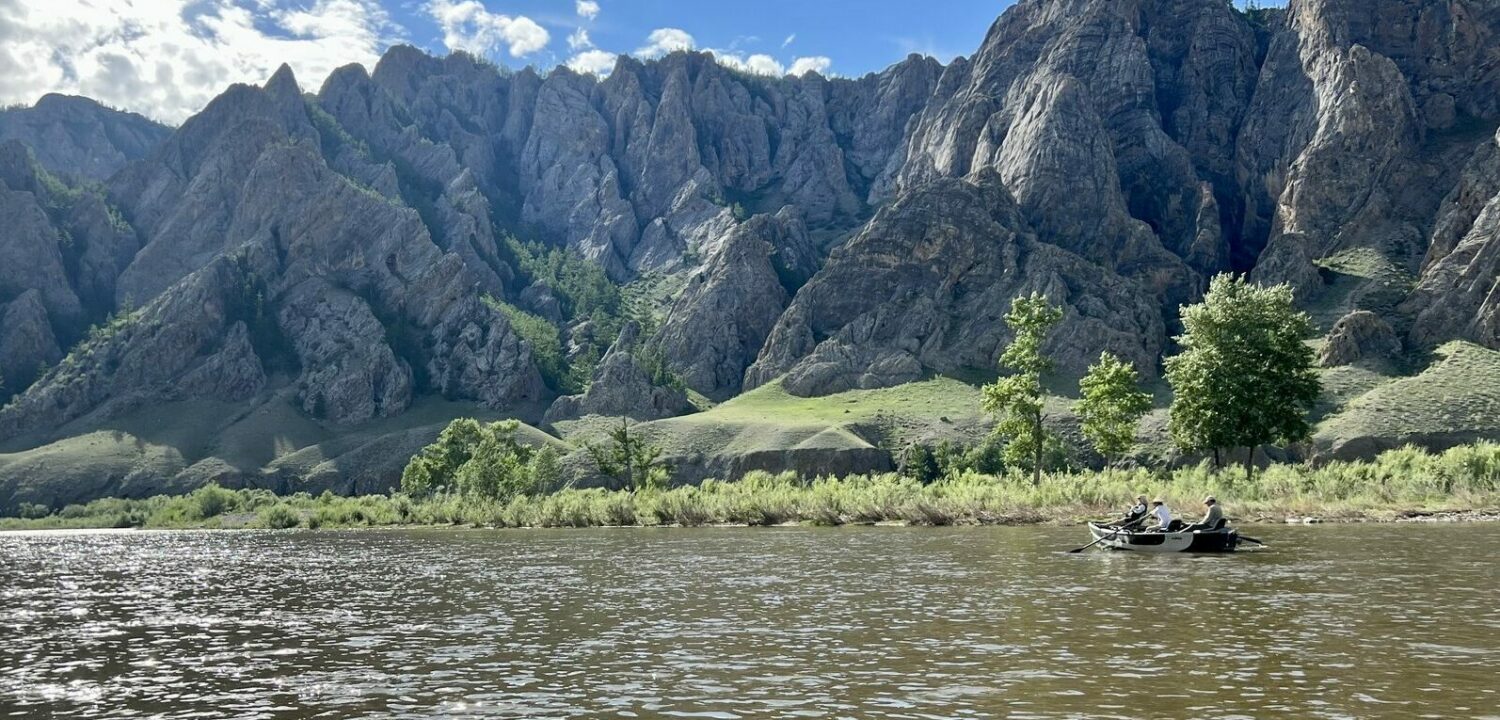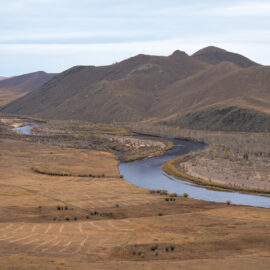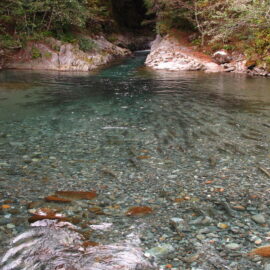The organization’s plans for closure include funding for WSC’s work to protect a cherished and vulnerable wild salmonid.
For decades, The Taimen Fund has worked to build scientific programming and partner networks to protect and conserve taimen in Mongolia.
Taimen, a freshwater apex predator and the largest member of the salmonid family, are increasingly imperiled across their range—a vast area of Eurasia that comprises one-tenth of the world’s land surface. Found in remote rivers from Mongolia to the Korean peninsula and the Russian Far East, these resident wild fish can live over 30 years and reach 6 feet in length (and over 100 pounds in weight) given the right conditions.
Taimen are a prized species for anglers as well as scientists hoping to better understand these elusive creatures—and how to save them.
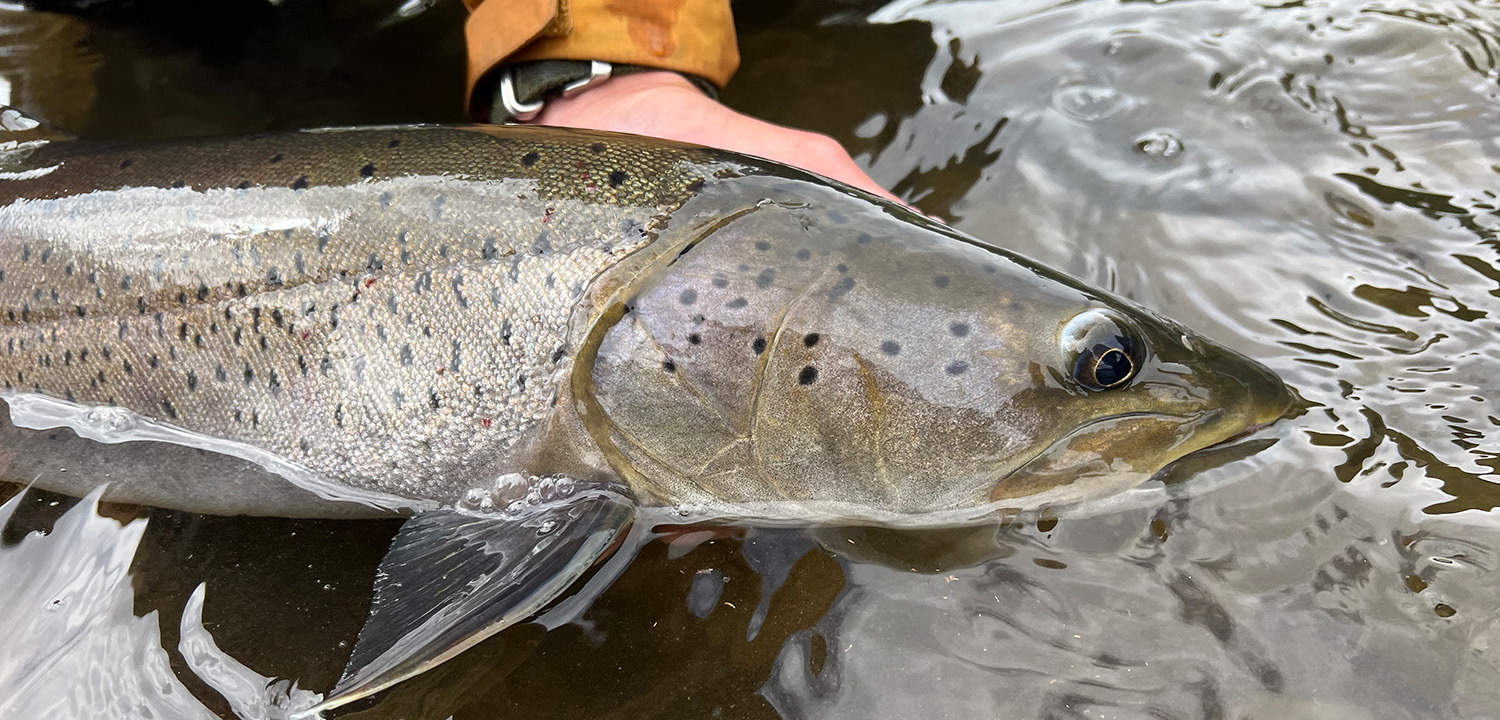
In Mongolia, The Taimen Fund (previously known as the Tributary Fund) has long worked at the nexus of taimen rivers, stunningly rugged landscapes, and ecotourism. In the process, The Taimen Fund has set an example for taimen conservation in Mongolia’s Eg/Ur watershed that unites anglers and scientists, tourism professionals and community members.
The Taimen Fund’s River Keeper Program provides a vehicle for engaging local communities in species conservation, while its commissioned research has expanded the body of scientific knowledge on taimen food webs, life history, and genetics. Under the leadership of long-time Executive Director Charlie Conn, The Taimen Fund has established an outreach model for domestic and visiting anglers that can inform conservation work in other taimen watersheds throughout the Western Pacific.
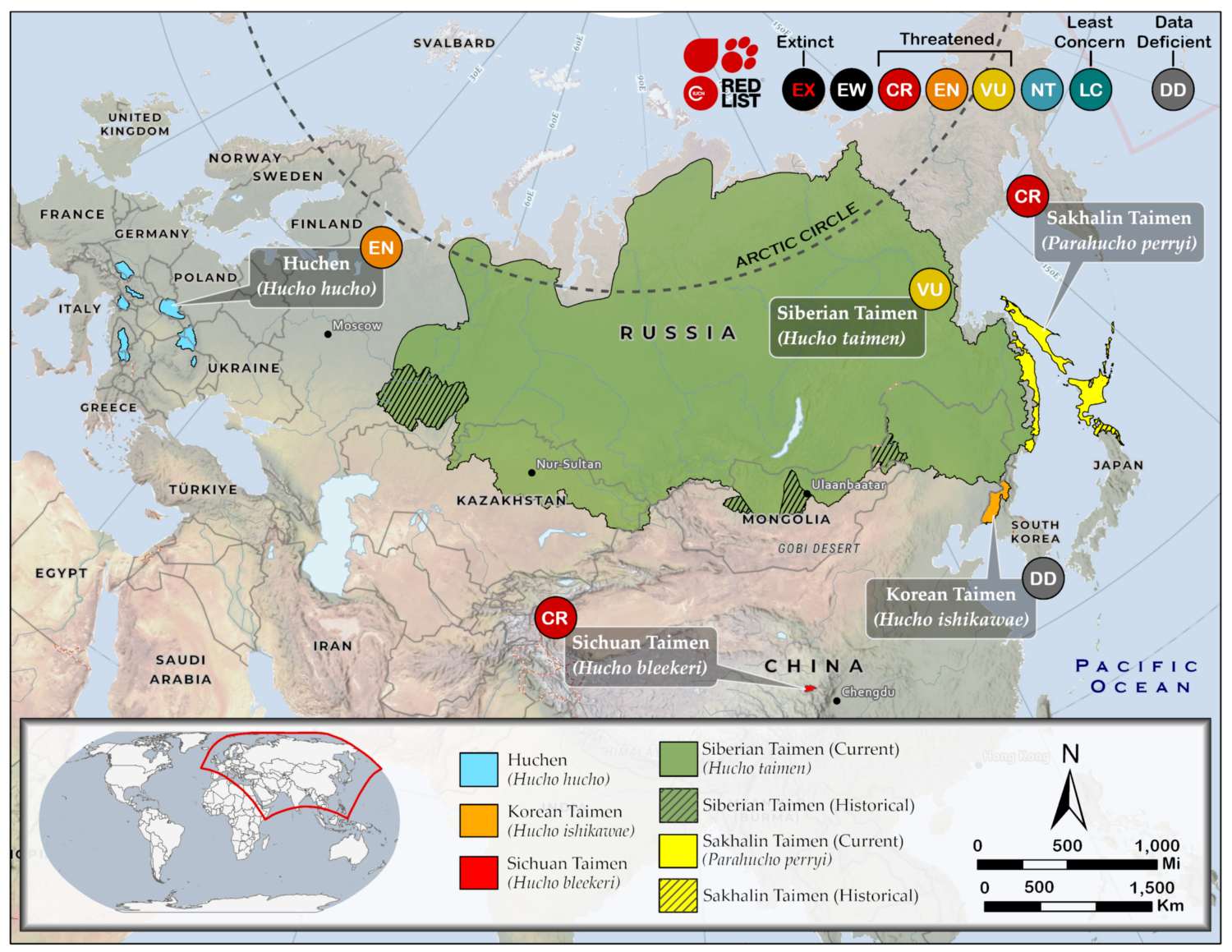
Now, The Taimen Fund hands its work to Wild Salmon Center and its International Taimen Initiative. Late last year, The Taimen Fund’s Board of Directors announced the transfer of remaining funds to WSC following extensive discussions with a number of organizations in the space.
The board’s decision to pass the torch comes in recognition of Wild Salmon Center’s leading role in global efforts to protect and conserve wild salmonids—including its growing research program focused on freshwater and sea-run taimen across the Western Pacific.
The Taimen Fund’s decision to hand its work to Wild Salmon Center and its International Taimen Initiative comes in recognition of WSC’s leading role in global efforts to protect and conserve wild salmonids.
Mongolia will play a central role in the work of the International Taimen Initiative, says Wild Salmon Center Science Director Dr. Matt Sloat, a field researcher in several research projects coordinated by The Taimen Fund.
Mongolia is of keen interest to conservation scientists, says Dr. Sloat, given the nation’s genetically unique and relatively robust taimen populations. Taimen are a key indicator of river health, but a lack of comprehensive data on taimen has historically complicated efforts to protect the species, says Dr. Sloat.
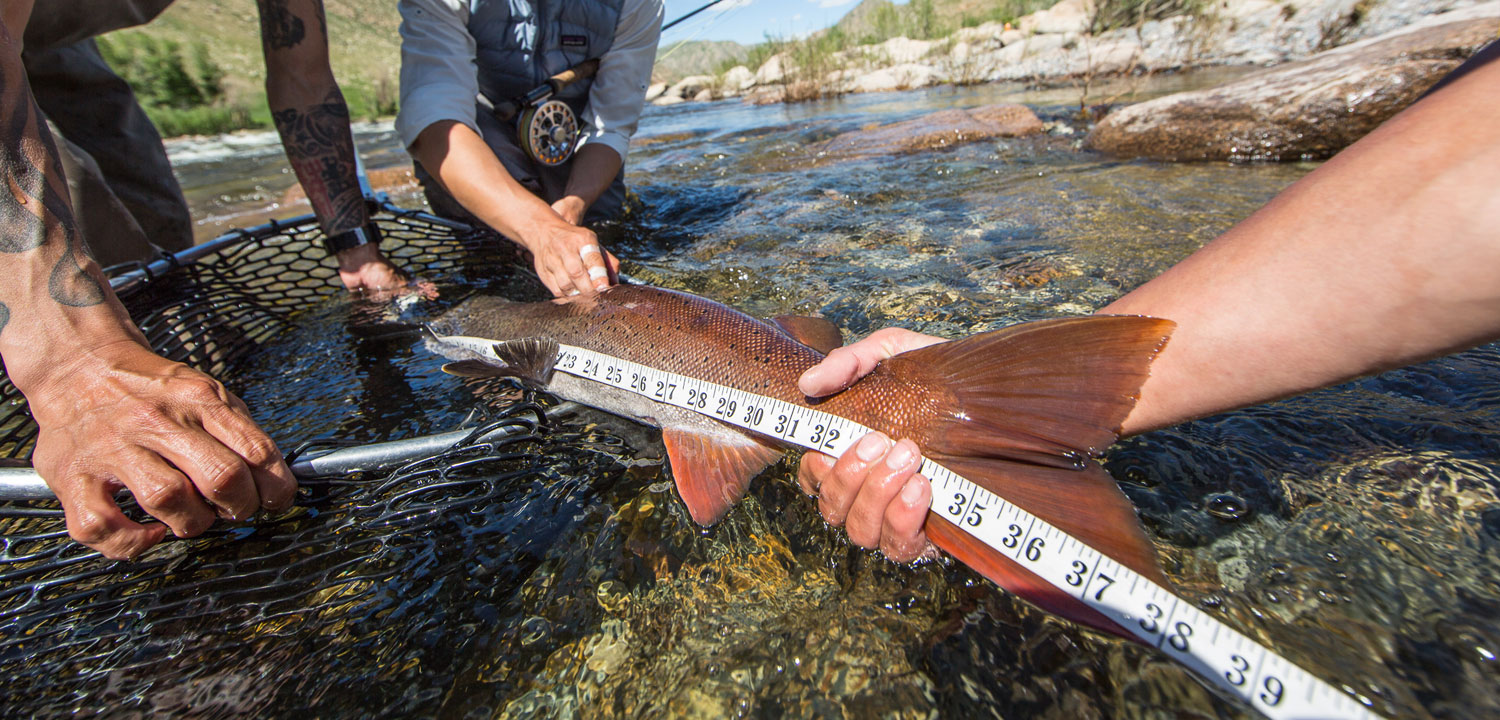
Today, taimen are in rapid decline due to poaching, habitat destruction, and the accelerating impacts of climate change—making the need to understand and protect this keystone species more urgent than ever.
“Mongolia remains one of the last, best taimen sanctuaries,” Dr. Sloat says. “To safeguard these populations across their vast range, we need to know more about their responses to a rapidly changing environment.”
“Mongolia remains one of the last, best taimen sanctuaries.”
WSC Science Director Dr. Matt Sloat
The Taimen Fund’s financial transfer to Wild Salmon Center will be used as seed money to further develop a locally-driven and committed taimen conservation program in Mongolia, while advancing the body of scientific research available to conservationists worldwide. Wild Salmon Center will also ensure that The Taimen Fund ’s partner and donor networks can continue to grow with an organization similarly committed to both science and the growth of responsible ecotourism that supports local communities.
“Wild Salmon Center has led the conservation of wild Pacific salmonids for three decades and counting,” says Maruisz Wroblewski, Wild Salmon Center Western Pacific Program Director. “As The Taimen Fund closes its final chapter, we look forward to expanding the important work of protecting Mongolia’s taimen through science, data, and the support of wild salmon champions everywhere.”
“As The Taimen Fund closes its final chapter, we look forward to expanding the important work of protecting Mongolia’s taimen through science, data, and the support of wild salmon champions everywhere.”
WSC Western Pacific Program Director Mariusz Wroblewski
